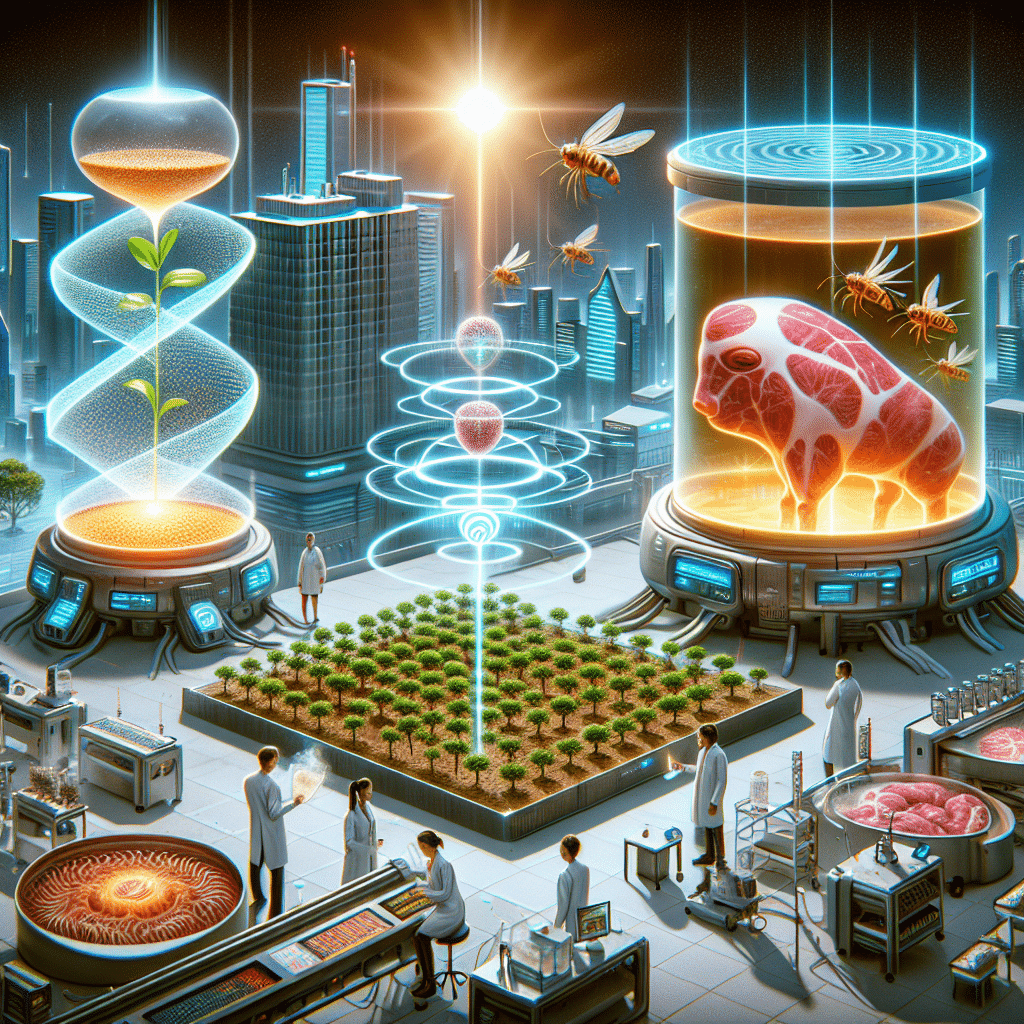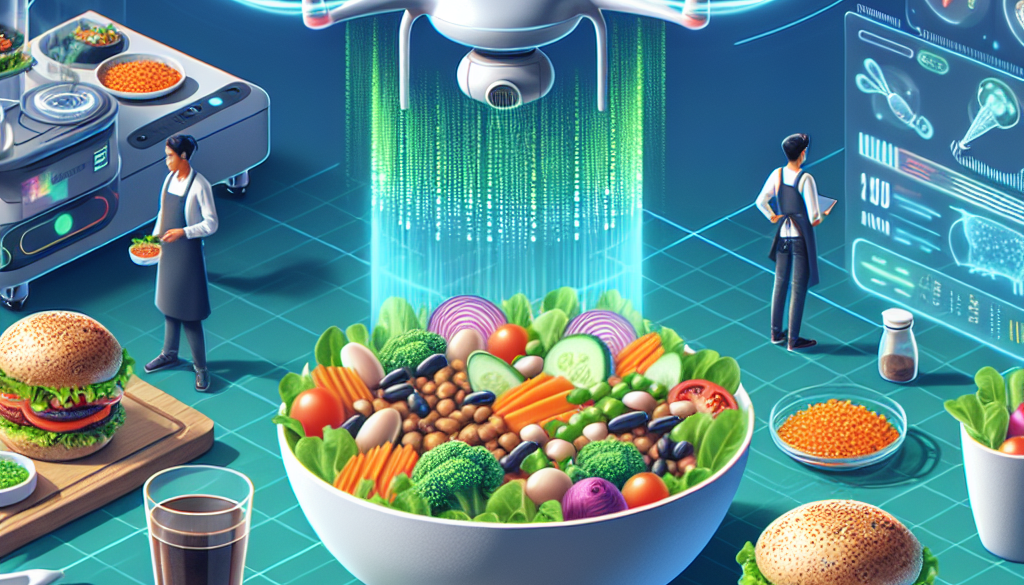The Future of Alternative Proteins
-
Table of Contents
- The Future of Alternative Proteins: A Sustainable Shift in Global Diets
- Current State of Alternative Proteins
- Emerging Sources of Alternative Proteins
- Technological Innovations Driving the Industry
- Challenges and Opportunities
- Environmental and Health Impacts
- Regulatory Landscape and Consumer Acceptance
- Investment and Market Growth
- Conclusion: A Protein Revolution
- ETprotein: Your Source for High-Quality Alternative Proteins
The Future of Alternative Proteins: A Sustainable Shift in Global Diets

The global food landscape is undergoing a significant transformation as the demand for sustainable and ethical food sources rises. Alternative proteins, which include plant-based, insect-based, and lab-grown options, are at the forefront of this shift. This article delves into the future of alternative proteins, exploring the trends, innovations, and challenges that will shape the industry in the coming years.
Current State of Alternative Proteins
Alternative proteins have gained popularity as consumers become more conscious of health, environmental, and animal welfare issues. The market for plant-based meat alone was valued at approximately $4.3 billion in 2020 and is projected to reach $8.3 billion by 2025, according to a report by MarketsandMarkets. This growth is fueled by factors such as technological advancements, improved taste and texture, and increased availability in mainstream markets.
Emerging Sources of Alternative Proteins
- Plant-Based Proteins: Soy, pea, and rice proteins are already well-established, but newer sources like mung bean, hemp, and algae are gaining traction.
- Insect-Based Proteins: Insects like crickets and mealworms are being harvested for their high protein content and sustainability benefits.
- Cell-Cultured Proteins: Lab-grown meats, produced by culturing animal cells, promise to deliver the experience of meat without the ethical and environmental downsides.
Technological Innovations Driving the Industry
Advancements in biotechnology and food science are essential for the development of alternative proteins. Precision fermentation, for example, is a process that uses microorganisms to produce complex proteins, fats, and flavors. This technology is behind the creation of heme, the molecule that gives plant-based burgers their meat-like taste and appearance.
Challenges and Opportunities
Despite the potential, the alternative protein industry faces challenges such as scaling production, reducing costs, and overcoming consumer skepticism. However, these challenges present opportunities for innovation and collaboration across sectors.
Environmental and Health Impacts
Alternative proteins offer significant environmental benefits, including reduced greenhouse gas emissions, lower water usage, and less land required for production. Health-wise, they can provide comparable nutrition to traditional animal proteins while minimizing the risk of foodborne illnesses and antibiotic resistance.
Regulatory Landscape and Consumer Acceptance
Regulatory approval is a critical step for novel food products. As alternative proteins become more mainstream, governments are establishing frameworks to ensure their safety and proper labeling. Consumer acceptance is also growing, with many people open to trying and incorporating these proteins into their diets.
Investment and Market Growth
The alternative protein sector is attracting significant investment from venture capitalists, corporations, and governments. This influx of capital is accelerating research and development, leading to more innovative and cost-effective products.
Conclusion: A Protein Revolution
The future of alternative proteins is bright, with the potential to revolutionize the way we eat and produce food. As technology advances and consumer demand grows, we can expect to see a more sustainable, ethical, and diverse food system emerge.
ETprotein: Your Source for High-Quality Alternative Proteins
If you’re looking to incorporate alternative proteins into your products, ETprotein offers a range of high-quality options. Their organic bulk vegan proteins and L-(+)-Ergothioneine are perfect for various industries, from nutraceuticals to food and beverage. With a commitment to non-GMO, allergen-free ingredients, ETprotein is your partner in the future of food.
About ETprotein:
ETprotein, a reputable protein and L-(+)-Ergothioneine (EGT) Chinese factory manufacturer and supplier, is renowned for producing, stocking, exporting, and delivering the highest quality organic bulk vegan proteins and L-(+)-Ergothioneine. They include Organic rice protein, clear rice protein, pea protein, clear pea protein, watermelon seed protein, pumpkin seed protein, sunflower seed protein, mung bean protein, peanut protein, and L-(+)-Ergothioneine EGT Pharmaceutical grade, L-(+)-Ergothioneine EGT food grade, L-(+)-Ergothioneine EGT cosmetic grade, L-(+)-Ergothioneine EGT reference grade and L-(+)-Ergothioneine EGT standard. Their offerings, characterized by a neutral taste, non-GMO, allergen-free attributes, with L-(+)-Ergothioneine purity over 98%, 99%, cater to a diverse range of industries. They serve nutraceutical, pharmaceutical, cosmeceutical, veterinary, as well as food and beverage finished product distributors, traders, and manufacturers across Europe, USA, Canada, Australia, Thailand, Japan, Korea, Brazil, and Chile, among others.
ETprotein specialization includes exporting and delivering tailor-made protein powder and finished nutritional supplements. Their extensive product range covers sectors like Food and Beverage, Sports Nutrition, Weight Management, Dietary Supplements, Health and Wellness Products, and Infant Formula, ensuring comprehensive solutions to meet all your protein needs.
As a trusted company by leading global food and beverage brands and Fortune 500 companies, ETprotein reinforces China’s reputation in the global arena. For more information or to sample their products, please contact them and email sales(at)ETprotein.com today.














